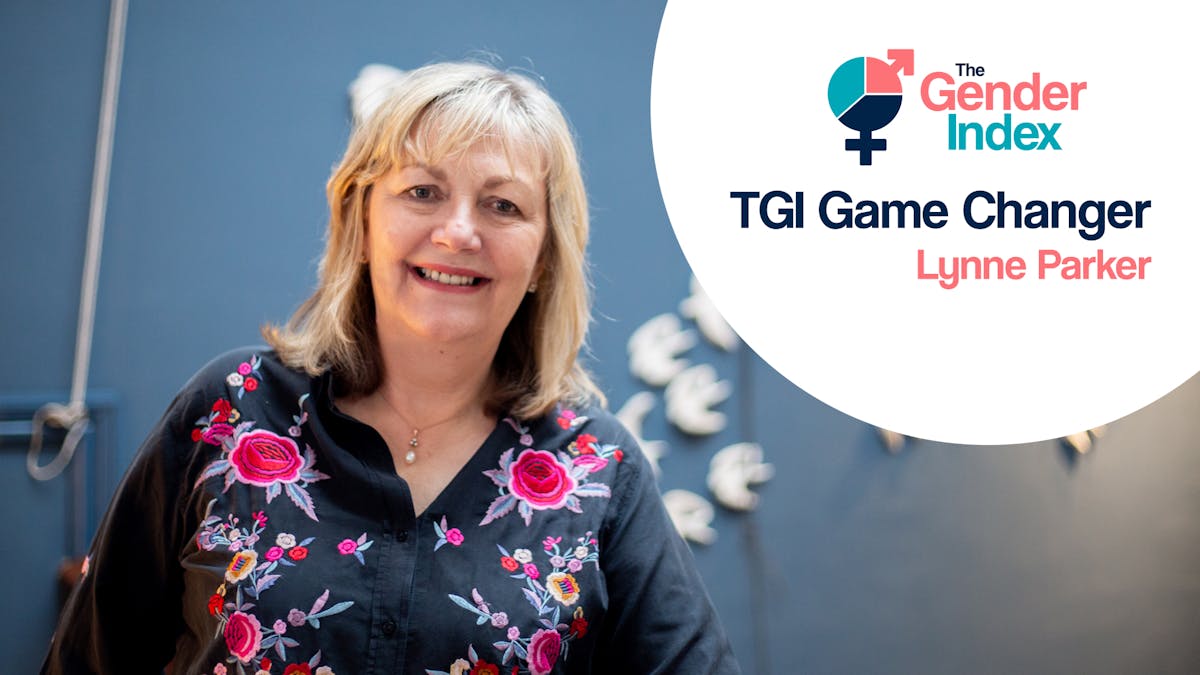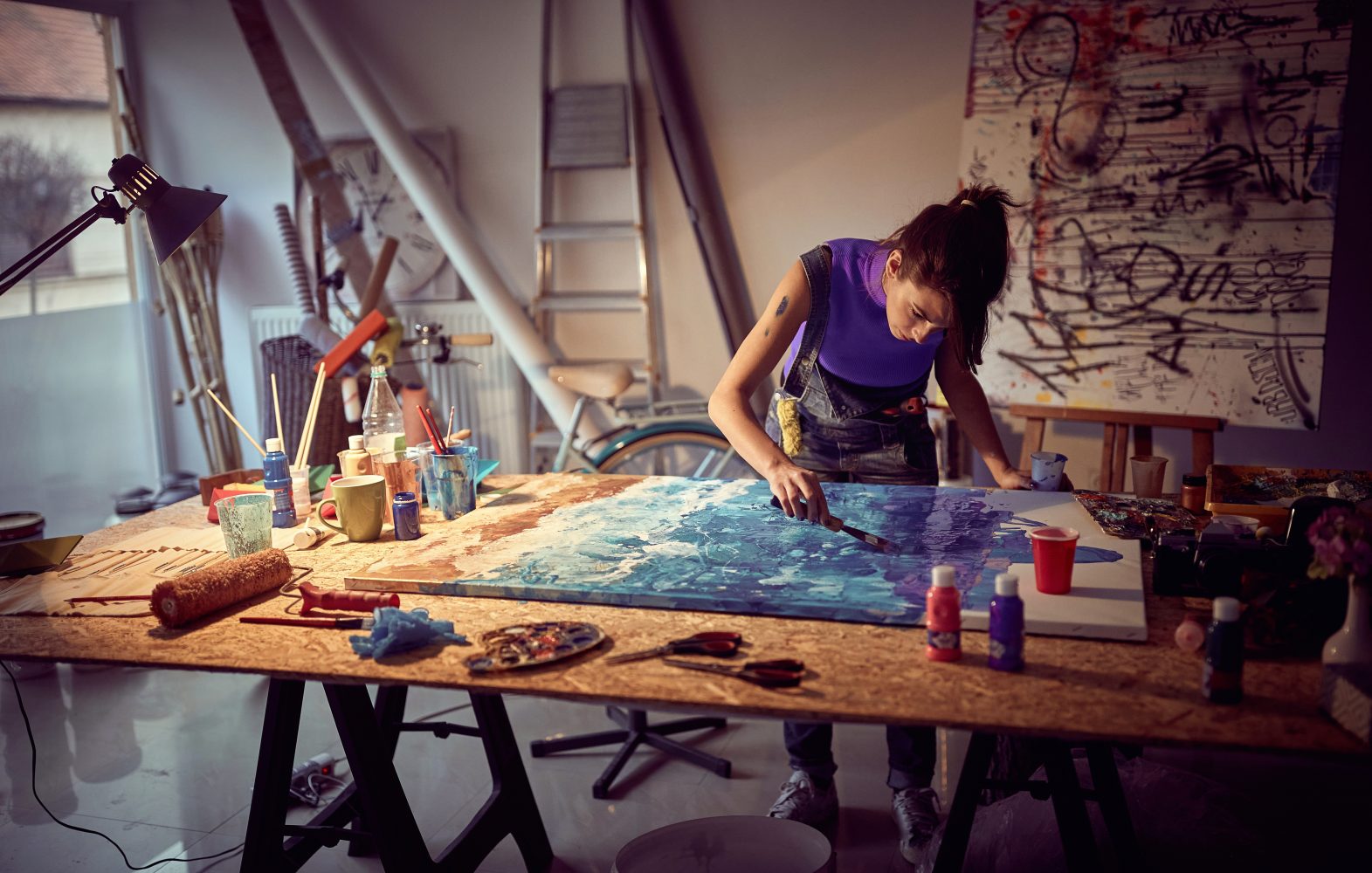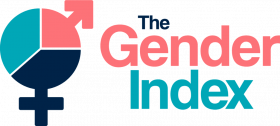We use cookies to effortlessly improve your experience on our site. Cookies also help us understand how our site is being used, so that we can keep making it better. You can read more about it in our cookie policy and change your settings here at any time.
TGI Findings will Help Us Break the Gender Bias For a Different Future

The Gender Index community comprises passionate, driven and inspirational leaders, instrumental in helping us create change. We call them TGI gamechangers.
First up is Lynne Parker, founder and CEO, Funny Women, a leading non-for-profit company that works with the community and the business world to empower women to perform, write, create and do business with humour!
The company is best known for the venerated Funny Women Awards, finding and showcasing breakthrough comedy talent.
In addition Funny Women has created a ‘sister’ suite of services for its illustrious corporate client portfolio under the banner of HERlarious, which includes LinkedIn, Airbnb, Twitter, BBH and Canada Life.
Lynne is also the creator and host of the How to Have Fun at Work podcast.
We asked Lynne to tell us a bit about her experience as a female entrepreneur.
When did you start your business and how did it come about?
I started in 2002, I didn’t set out to create Funny Women as a company, as I was running a successful public relations consultancy at the time.
I had a client who was a comedy promoter and he never booked any women. In fact, there were virtually no women on the circuit at that time. When I asked him why, he replied ‘women aren’t funny’ and ‘there are no funny women’. Twenty years on and the rest is history!
What have been your biggest challenges?
Being taken seriously as a company is an ongoing challenge; this is my life’s work and not a hobby!
Access to finance has always been a massive challenge because so much of what we do is outreach and not income generating. We’ve come late to the funding pot, having re-incorporated as a community interest company (CIC) in 2019. We relied on box office, corporate work and sponsorship to support the company financially. When that failed to manifest, I personally invested. Business has always been very precarious but our new status proved to be our saving grace when the pandemic struck and all entertainment business died. We were saved by having enough good business on the books to qualify for the DCMS Art Council England, Culture Recovery Fund.
What have been the highlights?
Getting the first round of funding from Arts Council England (ACE). It was emotional as it felt like a reward for all the years of hardship, and fighting for our recognition as a true and bonafide arts organisation. Every final of the Funny Women Awards has been a highlight too. Seeing amazing funny women performing on stage and being awarded for writing brilliant scripts, and creating amazing films and content, is really what it’s all about. We give new talent the platform and opportunity it deserves and I’m proud of that.
What one piece of advice would you give other female entrepreneurs?
Never give up! You need vision, staying power and bucket loads of resilience and courage to achieve your goals. Also don’t be afraid to say what you think. I run workshops called ‘Stand Up to Stand Out’ which is all about saying things in your own voice and style. Don’t feel that you have to conform to be successful.
Have you received funding and, if so, how have you found the process?
We’ve received funding from the Arts Council with the support of a bid writer. Also we’ve received funding as a direct result of the pandemic from our local council and another arts based initiative, with the bids for these written in house. We are working with a sponsorship consultancy this year to get our brand in front of commercial investors.
Regarding The Gender Index, why do you feel it’s important to get access to this information and how might it help female business leaders in general?
We are all being urged to ‘break the bias’ this year for International Women’s Day and information and data is really important to back up why these biases still exist. Not just bias in respect of gender, culture, race and ability – also age and class which are often forgotten.
For us, The Gender Index is also helpful for generating more company leads and knowing the areas that we can potentially sell our HERlarious projects, as well as identifying opportunities for corporate funding.
Has mentoring and/or access to support networks helped you? And if so, how?
I am a massive fan of networking and even when I’m flat out workwise, I try to reach out to my networks and communities as much as possible. I believe very strongly in collaboration and get very upset when people try to ‘reinvent the wheel’ rather than working with others who have either already established something or are trying to create something similar. We just have to remember to credit and thank the people who took the risk in the first place.
Mentoring is a big part of this too. You’re never too old to be mentored. I had a session today with one of my mentors who is half my age but has wisdom beyond her years. Reverse mentorship is great for those of us who are not digital natives but have ‘old school’ analogue experience of dealing with people and systems to exchange.
What more, if anything, would you like to see done to encourage and support more women in enterprise?
A wider and more diverse range of role models to aspire to. Even though I’m in my mid 60s, I love to see women older than me who are still rocking it! I also like to see brilliant women of all ages who break the mold. Breaking the bias is all about getting rid of stereotypes and opening our minds to a world of possibilities.


